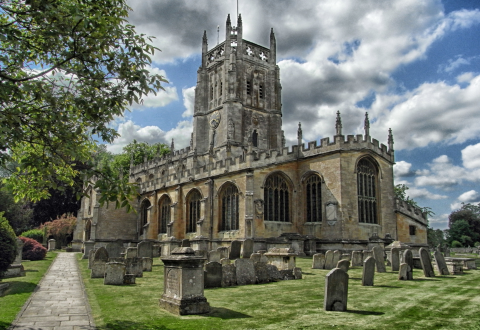This project aims to co-develop climate resilience in cathedrals and church buildings across the UK by enhancing the resilience of the buildings, ensuring treasured heritage assets and active places of worship will be protected, and increasing resilience in the communities in which the church is situated.
Background
The Church of England as an organisation is extremely widely known, primarily as a function of its religious purpose, however, it also encompasses a significant built estate, including over 16,000 church buildings embedded in nearly every community all around the country – 78% of which are listed buildings.
Many of these buildings and their communities are at risk of damage due to climate events or are particularly vulnerable to a number of climate related stresses. These include: flooding, increases in humidity causing dry and wet rot, increased UV damaging interiors, increased pest infestations, and building movement caused by temperature and humidity changes.
This project looks at how we can deal with these problems, minimising impacts to both our church buildings and communities (we call this climate adaptation). Secondly, how we can utilise our buildings in both a practical and missional sense to protect the at-risk communities that the buildings serve (we call this climate resilience).
Partnership
This project is a collaboration between the Cathedral and Church Buildings Division (CCB) of the Church of England and a researcher, Chris Walsh, from the Tyndall Centre for Climate Change Research, for a period of 12 months. There is already some brilliant work taking place in the Church of England and other heritage organisations and this project aims to support that work and amplify its success across the heritage and church sectors. It also wants to examine the barriers to making these changes and work on ways to minimise and overcome them.
Timeline and outputs
Stage 1: Hearing Stories (Jan-Aug 2022)
- Recording stories of successes, of projects that have ‘future-proofed’ the church, and of times when the church has acted as a refuge (like last year’s floods).
- Recording learnings from times that making these changes has not worked the first time.
- Building a resource base of 20 case studies.
Stage 2: Gathering Knowledge (Apr-Aug 2022)
- Running 10 workshops across a range of Church of England dioceses.
- Better understanding the issues affecting churches, and finding solutions together.
Stage 3: Sharing Learning (Sep-Dec 2022)
- Producing resources including guidance notes, short videos and academic papers.
- Increasing expertise on the issues of climate resilience and adaptation.
- Helping to inform future decisions that safeguard church buildings and communities.

